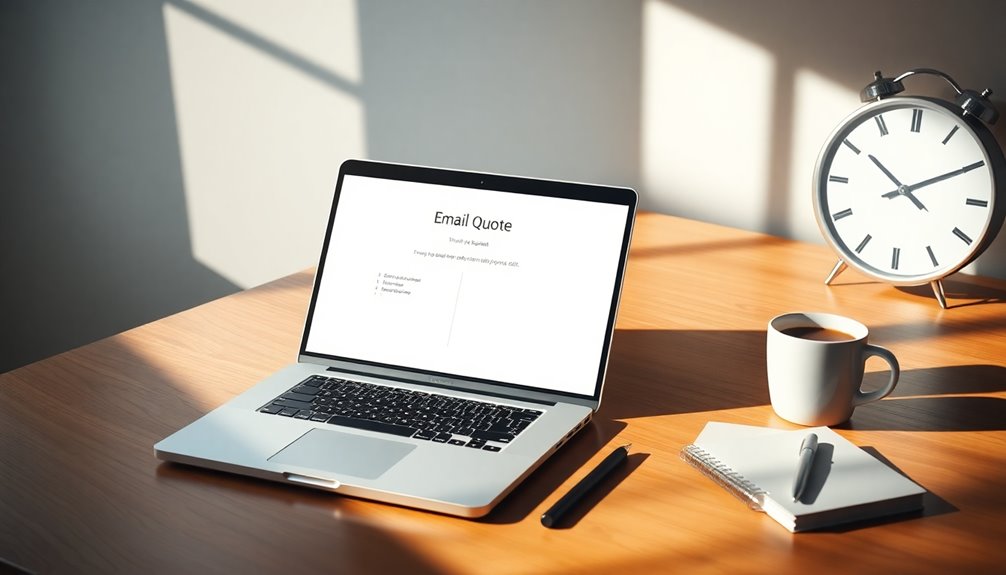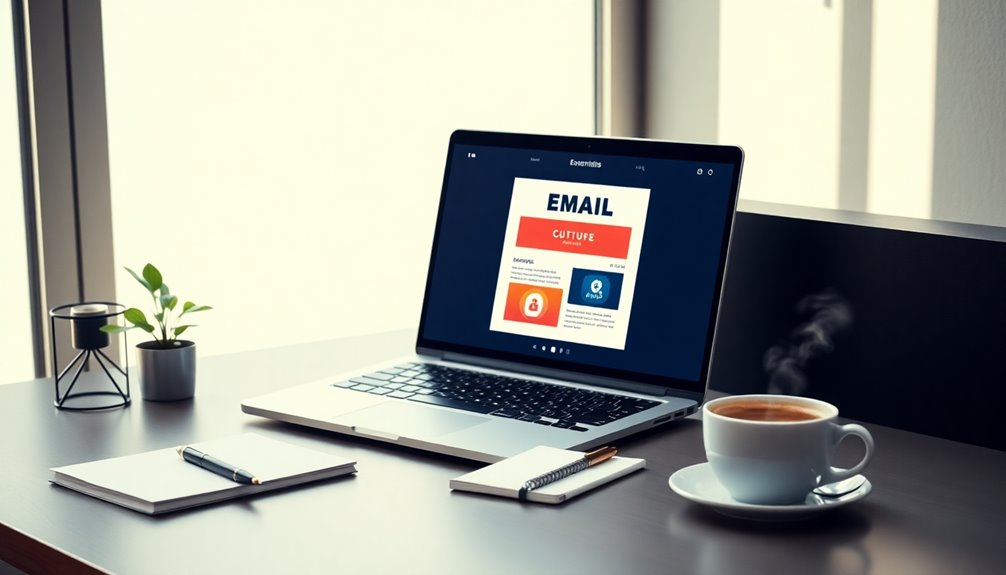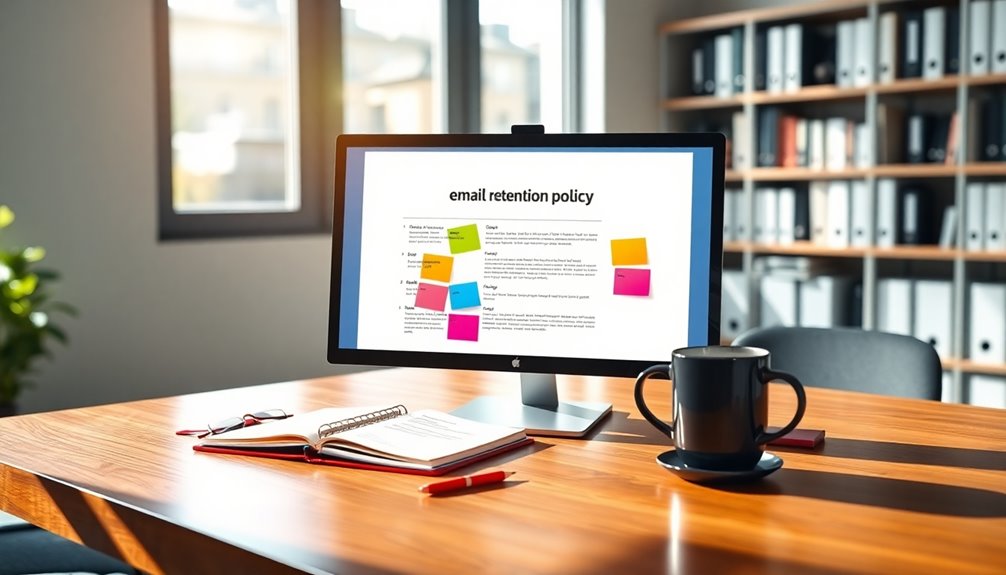To catch a coach's attention, your email needs to stand out among the hundreds they get weekly. Start with a compelling subject line that includes your name, position, and graduation year. In the body, highlight key stats like your GPA and attach a link to your highlight reel for quick evaluation. Personalize your message by referencing specific achievements and showing genuine interest in their program. Avoid generic content—be concise and engaging instead. Coaches appreciate personal touches and follow-ups. Stick around, and you'll discover even more strategies to enhance your outreach efforts effectively!
Key Takeaways
- Craft a compelling subject line that includes your name, position, and graduating class to capture attention immediately.
- Personalize your email by referencing specific achievements and team dynamics to show genuine interest in the coach's program.
- Include key details such as GPA and club team, and attach a link to your highlight reel for quick skill assessment.
- Keep your email concise and focused; avoid lengthy messages to maintain the coach's interest and engagement.
- Follow up with new information on your academic and athletic progress to demonstrate commitment and keep the conversation going.
Introduction

In today's competitive landscape, reaching out to college soccer coaches effectively can set you apart from the thousands of athletes vying for attention. A good email is your first step in making that crucial first impression.
With coaches receiving between 700 to 1,200 emails each week, your message needs to stand out. Start by crafting a personalized and concise email that grabs their attention.
When you write an email, pay close attention to the subject line; including your position and graduating class can significantly increase the chances of your email being opened.
In your initial outreach, be sure to include essential details like your name, position, GPA, and your club team. Don't forget to add a link to your game film, as this provides coaches with a quick way to evaluate your skills.
Builds Essential Coach Relationships

Crafting personalized emails not only grabs a coach's attention but also lays the groundwork for building meaningful relationships. When you reference specific achievements or highlight team dynamics, you're showing coaches that you genuinely care about their program.
Remember, coaches have a lot on their plates, often sifting through 700-800 emails weekly. By sending tailored messages, you stand out in a crowded inbox.
Maintaining professionalism and proper email etiquette reflects your seriousness about college recruiting. This leaves a lasting positive impression that can make a difference. A good GPA is impressive, but sharing updates about your academic and athletic progress in your follow-up emails keeps coaches engaged and reinforces your commitment to their program.
Engaging in targeted communication is crucial. Instead of mass emailing, focus on specific schools that match your goals. Building strong connections with coaches through thoughtful communication helps establish rapport, which can lead to long-term relationships with coaches. These connections not only increase your chances of recruitment but also set you up for success in college soccer.
Personalized Coach Connection
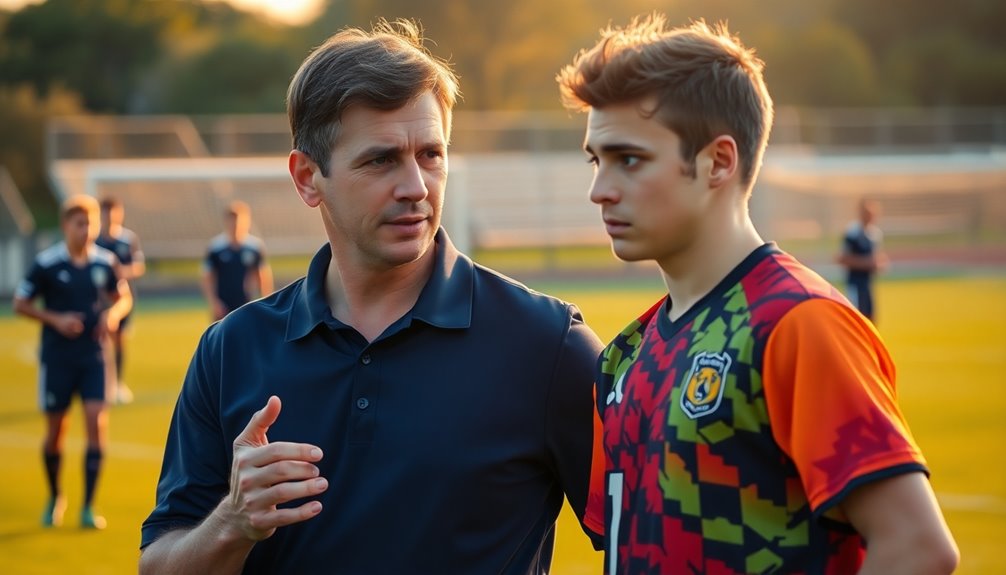
Building a personalized connection with coaches can significantly boost your chances of recruitment. When you send personalized emails that highlight a coach's specific team achievements or recent games, you show genuine interest. Coaches appreciate this tailored approach over generic outreach.
It's crucial to include personal connections, like mutual acquaintances or shared experiences with current or former players, which can create familiarity and rapport. Additionally, leveraging intelligent tutoring systems for practice strategies can help demonstrate your commitment to improvement.
Additionally, research the coach's recruiting philosophy and recent successes. Mentioning these in your email illustrates your understanding of the program and indicates a good fit, enhancing your chance of engagement.
Don't forget to craft a compelling subject line that features your athlete's position and relevant stats, such as "John Smith – Class of 2024 – Goalkeeper with 3 Shutouts." This can help capture a coach's attention amidst their daily influx of emails. Remember, a strong personal connection can lead to inspiring conversations that resonate with the coach's values and vision for the team.
Crafting Compelling Subject Lines

A strong subject line can make all the difference when reaching out to college coaches. Since coaches sift through an average of 700 to 800 emails weekly, your subject line needs to grab their attention right away.
Instead of using generic phrases like "Looking for a scholarship," get specific and creative. Consider including details like your name, graduation year, position, and club team. For example, "Class of 2023 – 3.8 GPA – Forward" instantly conveys relevant information.
Crafting a subject line that's not just good enough but exceptional requires you to highlight your unique strengths. Use catchy, curiosity-inducing phrases such as "Need a knockdown shooter who defends daily" to stand out.
You want to pique their interest and encourage them to click open your email. Additionally, showcasing your leadership skills in your email can demonstrate your potential as a valuable team member.
Pro Tips for Maximizing Impact
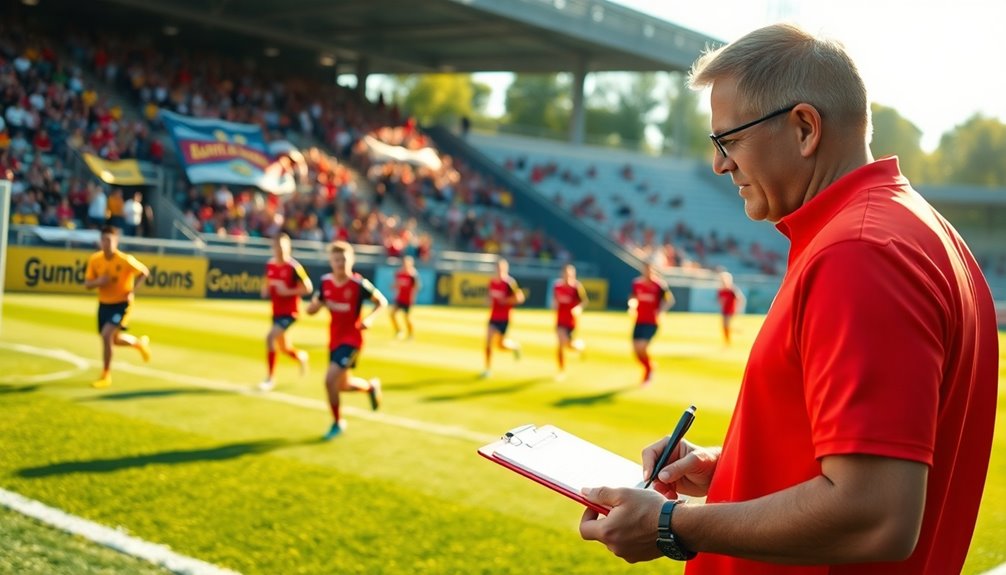
To make a lasting impression on college coaches, focus on delivering a clear and impactful message in your emails.
Start with a compelling subject line that includes your name, graduation year, position, and a notable achievement. This grabs attention and significantly increases the chances of your email being opened.
Keep your email concise and structured. Introduce yourself, then present key stats like your GPA and club achievements.
Don't forget to include a direct link to your highlight video, making it easy for coaches to assess your potential quickly.
Personalizing your message is crucial. Reference specific aspects of the coach's program or recent team successes to show genuine interest and understanding of their needs. This connection can make your email stand out.
If you don't receive a response, don't hesitate to follow up. Persistence shows commitment and can lead to increased engagement.
When you do follow up, share any new achievements or updates to keep the conversation fresh.
Lastly, consider timing when emailing college coaches. Avoid peak hours during the season and aim for sending your messages between 6 AM to 11 PM in the coach's time zone for the best chance of being read.
Common Mistakes to Avoid

Making a strong impression is important, but common mistakes can undermine your efforts in reaching out to college coaches. First, avoid generic subject lines like "Looking for a scholarship." Instead, use specific, engaging ones that highlight your skills, such as "John Smith – Class of 2023 – Goal Scorer with 20+ Goals." This grabs attention right away.
Keep your email concise. Lengthy messages can cause the coaching staff to lose interest, so focus on key stats and achievements without unnecessary detail.
Moreover, don't send mass emails to multiple coaches. Personalized outreach shows genuine interest and increases your chances of engagement.
Another critical mistake is failing to follow up. If you don't hear back within a week, send a polite follow-up email to express your continued interest.
Lastly, don't forget to include a link to your highlight video. Neglecting this can be detrimental, as showcasing your skills through video significantly enhances your visibility and appeal to college recruiters.
Avoid these mistakes, and you'll improve your chances of making a lasting impression!
Subject Line: Game Highlights Attached
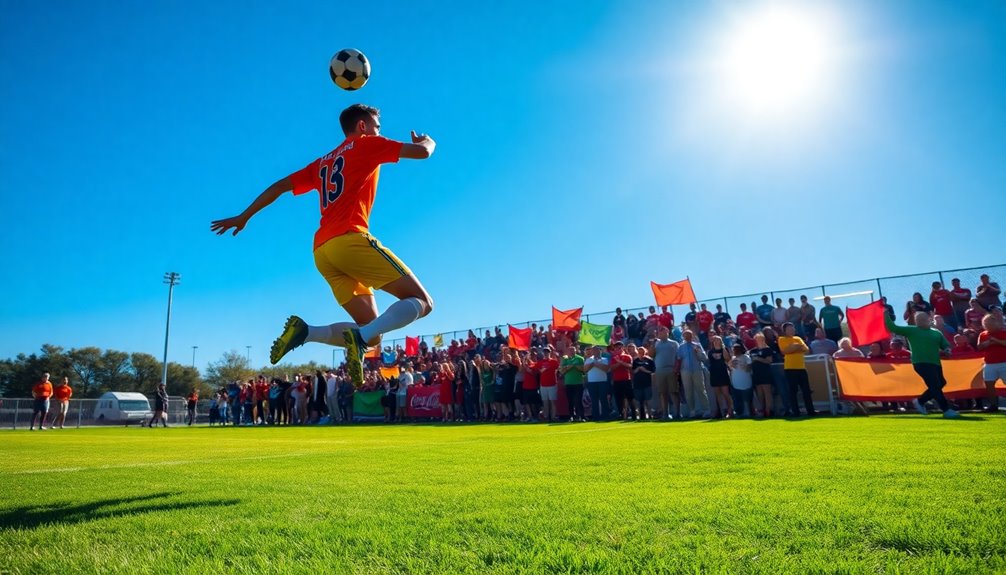
What catches a coach's eye in a crowded inbox? A compelling subject line, like "Game Highlights Attached," does just that. It directly informs coaches about your email's content while piquing their interest to click and open it.
In a world where coaches receive 700 to 800 emails weekly, your subject line needs to stand out. High refresh rates in video footage can also showcase your quick reflexes and agility, which are crucial for soccer performance.
Personalizing the subject line can also boost engagement. Consider using something like "John Doe – Class of 2023 – Midfielder." This specificity not only highlights your identity but also makes it easier for coaches to remember you.
Additionally, emphasizing game footage in the subject line underlines the importance of visual content in recruitment. Coaches often rely on video to assess player skills and performance, making it vital to showcase your best moments.
Engaging and curiosity-inducing subject lines lead to higher open rates, ensuring your email doesn't get lost among generic messages. In the same way that social media impacts celebrity reputation, a well-crafted email can significantly influence a coach's perception of you.
Final Thoughts

Crafting effective emails is just the beginning of your recruitment journey. To stand out, you need to write personalized messages that catch a coach's eye. With coaches receiving 700 to 800 emails weekly, a compelling subject line and a strong introduction are crucial for making a good first impression.
Don't forget to include key stats, like your GPA and season averages, along with a link to your highlight video right after the introduction. This approach keeps your email concise while showcasing your talents.
After your initial outreach, it's vital to follow up. Persistence shows commitment, and by providing new information in your follow-up emails, you can keep the coach engaged.
Also, when you understand the dynamics of the team, mentioning specific aspects in your emails can help build rapport and demonstrate genuine interest in their program.
Utilizing technology, such as AI systems and highlight video platforms, can streamline your communication efforts. This way, you can maintain a personalized touch even in mass emailing campaigns.
Frequently Asked Questions
How Do I Write an Email to College Coaches in Soccer?
To write an email to college coaches in soccer, start with a strong subject line. Introduce yourself, explain your fit for their program, share your schedule, and include your highlight video. Keep it concise and engaging.
What to Do if Coaches Don't Respond to Emails?
If coaches don't respond to your emails, follow up within a week. Include new achievements or stats, and consider calling them. Just remember to stay professional and respect their busy schedules.
How to Get College Coaches to Respond to Your Emails?
To get college coaches to respond, personalize your emails with specific achievements and stats. Use engaging subject lines, be concise, and follow up if you don't hear back. Show genuine interest in their program.
Are College Coaches Allowed to Respond to Emails?
Yes, college coaches can respond to emails, but their ability may vary based on NCAA recruiting rules and periods. During quiet or dead periods, they might have restrictions on communication, affecting response times.

